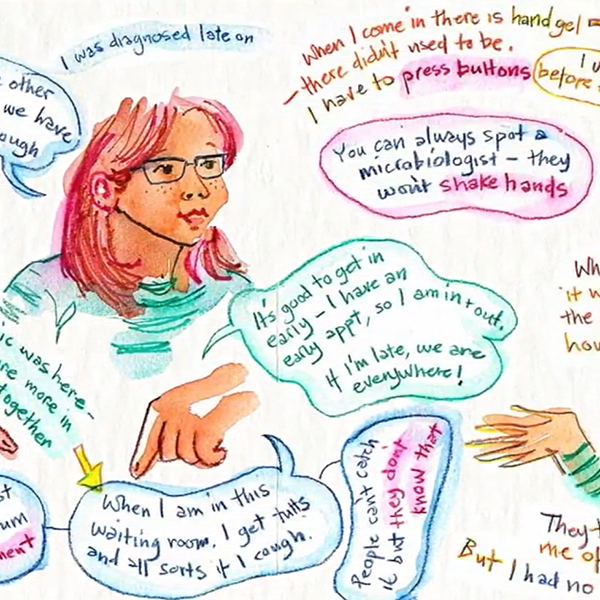Research Method: Graphic Interviews
Graphic Interviews involve a combination of talking and engaging with visual materials. This guide considers two Graphic Interview techniques: Graphic Elicitation using architectural plans, and Sketch Reportage. These two techniques can be used independently, or can be brought together in a single research project to provide multi-layered insight into the world of the respondent by combining different visual registers.
Graphic Elicitation entails the use of drawing methods in the context of an interview, with drawings either produced by the participant or researcher. Architectural drawings and layout plans, for example, can be introduced, with participants then invited to draw on and engage with the plans in response to prompts or questions. This can enable researchers to understand how participants experience, navigate, inhabit or work within a space. Sketch Reportage involves a skilled artist joining the research team and visually documenting the content of interview discussions in situ, capturing and representing aspects of life disclosed by respondents. This method can result in the production of visually compelling drawings or paintings which may be valued by participants, and can also be useful for communicating research findings. Both of these approaches provide ways of concretising what has been said and give the described experiences a material form.
You can find all the research outputs from the Methods for Change series here






